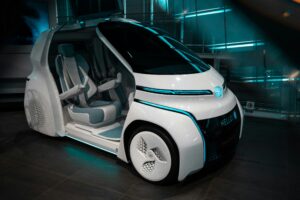Have you ever imagined a world where your car could predict your mood and adjust the environment accordingly? Well, that futuristic vision is becoming a reality sooner than you think. With the rise of emotion AI technology, vehicles are now equipped with sensors and algorithms that can detect a driver’s emotions based on facial expressions, voice tone, and even physiological signals.
Companies like Affectiva, an emotion AI startup, are at the forefront of this groundbreaking development. Rana el Kaliouby, co-founder and CEO of Affectiva, emphasizes the potential of emotion AI in the automotive industry, stating, “Understanding human emotions can lead to safer and more personalized driving experiences.”
According to a report by MarketsandMarkets, the emotion AI market is projected to reach $91.8 billion by 2024, with a compound annual growth rate of 32.3%. This growth is driven by the increasing demand for personalized technology experiences and the potential for emotional intelligence to enhance safety and user satisfaction.
Imagine a car that detects when you’re feeling stressed and automatically plays your favorite soothing music, or adjusts the temperature to make you feel more comfortable. Emotion AI has the potential to revolutionize the way we interact with technology and the world around us.
As we continue to integrate emotion AI into various industries, the possibilities are endless. It’s not just about improving user experiences; it’s about creating a more empathetic and intuitive technology landscape. So buckle up, because the future of technology is about to get emotional.



